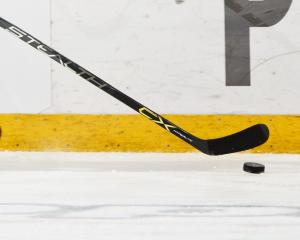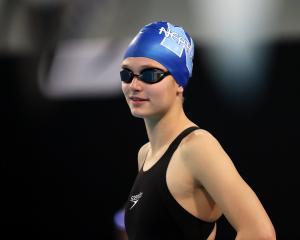Our appetite for being closer to the action and part of sport at the coal-face is so insatiable that teams are now expected to accept the invasion of cameras and microphones during their pre-game and half-time pep talks.
It is a bit like having the over-bearing parent standing right next to you in the team huddle listening to everything and nodding or shaking their head accordingly.
I suppose one positive of having a bird's eye view is that communication is not two-way and so far technology keeps the comments and input of the observer at bay.
However, how has this invasion of a very private and intimate aspect of team sport influenced coaches?
Have they changed their approach at these breaks in play because of jutting cameras on their shoulder and furry microphones under their chin?
At the recent national sevens competition in Rotorua all the coaches were warned that microphones would pick up every emotional, tactical, technical and ''foul'' utterance from their lips.
I must admit it is fascinating to see how differently coaches speak to their teams.
Some take the technical/tactical high road and give specific advice and feedback on how to approach the game, the opposition and in some cases the referee.
Others decide to take the intuitive road and appeal to the emotions of their players by emphasising effort, self-belief, loyalty and guts.
Which is more effective? Perhaps in seven minutes getting a shot of adrenaline by pulling on the heart strings is all an athlete needs to burst through a tackle and score the winning try.
Or is it better to give the players some concrete tools and ideas to implement so they are not overwhelmed with emotion and anxiety and approach the game in a logical and rational manner?
As an academic it would be an intriguing study to see which approach has the most impact on performance and outcome.
But what happens when the coaches don't say a word?
Some sevens coaches were noticeably silent in the huddle and players took the verbal lead, breathlessly expressing their ideas between sips of water and gasps of much needed oxygen.
Does the coach have to say something to be considered effective or is silence golden sometimes?
It was noted during netball's Oceania Tri Series recently that the usually vocal and outspoken Silver Ferns coach Waimarama Taumaunu was muted and fixed to her seat during breaks.
Were the muzzled coaches doing this voluntarily or was it a sign of something more sinister happening in the ranks?
Apparently the end-of-year review included a request from players that they come up with their own on-court solutions.
Is this a signal of unrest between players and the coaches or is it innovative and forward-thinking that will benefit the team in the long run?
If we want our athletes to learn how to problem-solve and think for themselves, especially in tight games when many athletes and teams ''choke'', silent coaches is a good thing.
Many supporters of the empowering approach to coaching would applaud coaches taking a back seat when it comes to this form of communication and, in the long term, more of this would benefit New Zealand athletes and teams, who have been accused of being ''chokers''.
It takes a lot of self-control as a coach/leader/mentor/parent not to say anything and to let your protege, child and follower learn from their mistakes, make their own assessment, and determine the course of action they will take.
It will be a few years yet before all coaches will be able to muzzle themselves, and in the meantime coaches should expect more technological invasions into one of the last refuges from public scrutiny.
Even though we feel like we're eavesdropping we can't help but turn the volume up.
Then we get to hear all the emotion, intensity, cliches and expletives that the candid coaches share with not only their teams but us as well.










